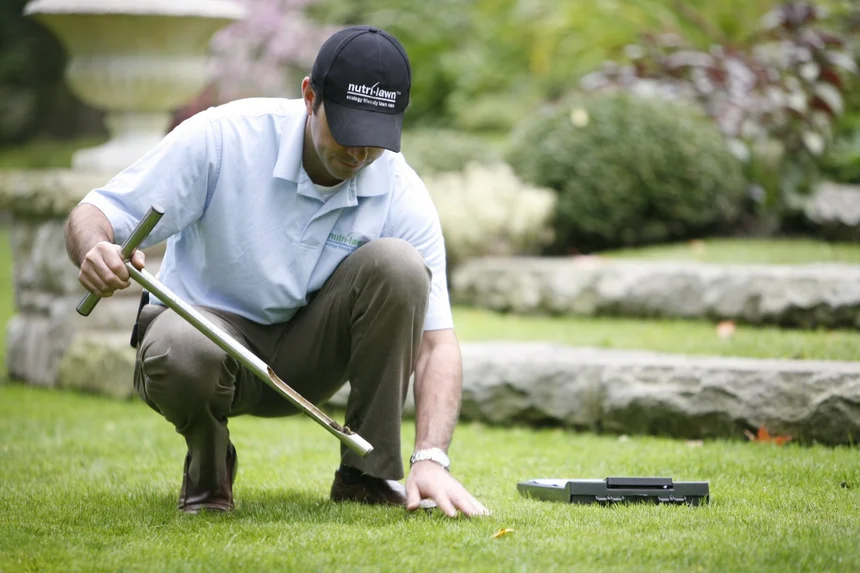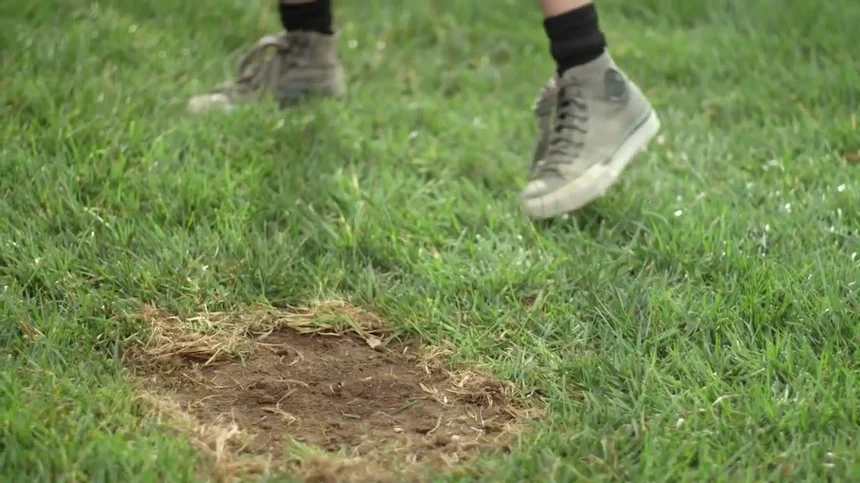April marks the beginning of the growing season for many lawns, and it's the perfect time to start preparing your yard for lush, green grass throughout the summer months. With the right care and attention, you can ensure that your lawn looks its best all season long. Here are five top tips from Nutri-Lawn to help you achieve a healthy, vibrant lawn this April:
- Perform a Soil Test - Before you start any lawn care activities, it's a good idea to perform a soil test to determine the pH level and nutrient content of your soil. This will help you identify any deficiencies or imbalances that need to be corrected. You can purchase DIY soil test kits or hire a professional to conduct a comprehensive soil analysis. Based on the results, you can adjust your fertilization and amendment practices accordingly to ensure optimal lawn health.

- Control Weeds Early - Weeds can quickly take over your lawn if left unchecked, so it's essential to implement a weed control strategy early in the season. Consider applying a pre-emergent herbicide to prevent weed seeds from germinating, or use targeted spot treatments for existing weeds. Remember to read and follow the label instructions carefully to avoid damaging your grass or surrounding plants.
- Address Bare Patches - If you notice any bare patches in your lawn, take steps to address them promptly to prevent weeds from taking hold and to maintain a uniform appearance. Loosen the soil in the bare areas with a rake or garden fork, then fill them in with topsoil and grass seed. Keep the newly seeded areas consistently moist until the grass establishes itself, and avoid heavy foot traffic during this time.

- Monitor for Pests and Diseases - Keep an eye out for signs of pest infestations or lawn diseases as the weather warms up. Common lawn pests such as grubs, chinch bugs, and armyworms can cause significant damage if left unchecked, while fungal diseases like brown patch and dollar spot can quickly spread and weaken your grass. If you notice any unusual symptoms such as yellowing, browning, or thinning grass, consult with a lawn care professional for proper diagnosis and treatment options.
- Practice Good Lawn Maintenance Habits - In addition to the specific tasks mentioned above, maintaining good overall lawn care habits is essential for keeping your lawn healthy and vibrant. This includes regular mowing, watering, and aerating as needed, as well as keeping your lawn mower blades sharp and adjusting your watering schedule based on weather conditions. Proper lawn maintenance will not only improve the appearance of your lawn but also help prevent common issues such as thatch buildup, compaction, and nutrient deficiencies.



